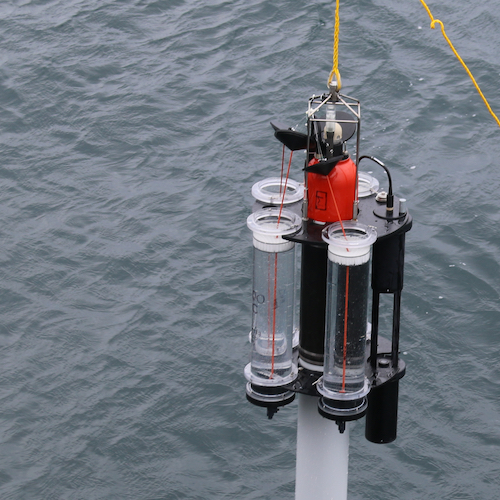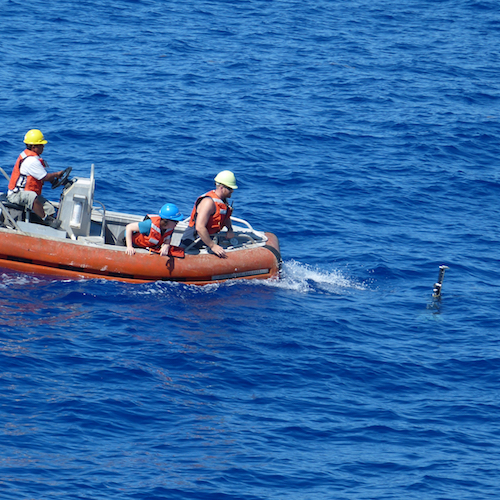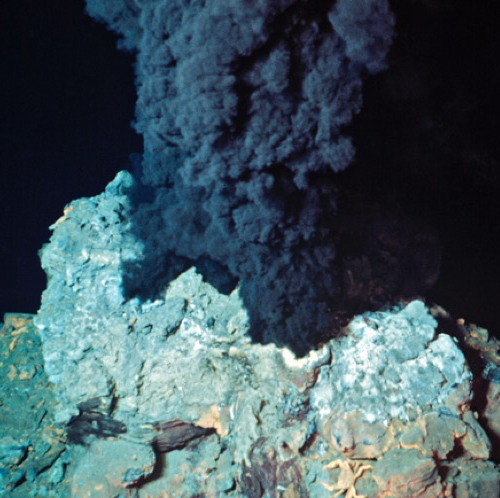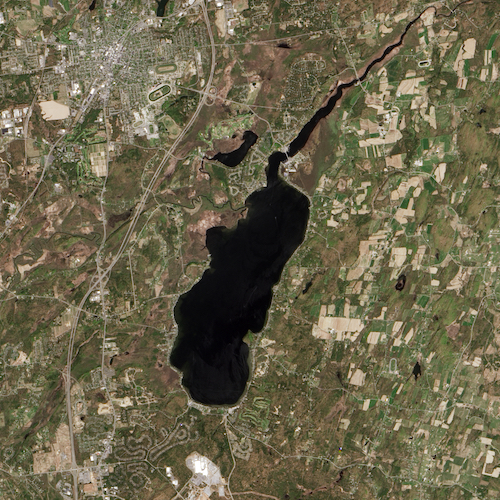
The Ocean's Biological Carbon Pump
The biological carbon pump converts atmospheric carbon dioxide into biological materials, and transfers them to the deep sea and seafloor sediments for thousands to millions of years. I go to sea to make observations using tools like sediment traps (in the photo!), optical sensors, and profiling floats. Skidmore students have analyzed sediment trap samples for biological and chemical composition, and helped test field sensors in the lab. Funding: NASA, NSF

Ocean Observations from Profiling Floats
Robotic profiling floats drift in the ocean while collecting vertical measurements of ocean biology and chemistry that are sent home via satellite. Floats let us observe places and seasons in the ocean where ships can't easily go. Skidmore students have analyzed profiling float data for seasonal and annual patterns in oxygen and carbon content. Funding: NASA, NSF

Optical Sensing of Hydrothermal Vent Plume Particles
In many areas of the open ocean far from land, marine life is limited by lack of iron, a critical micronutrient. Hydrothermal vents may be one important source, possibly delivering as much iron into the ocean as rivers. My work centers on developing new techniques using underwater optical sensors to detect the composition and size of iron particles in the plumes of hot hydrothermal vents. Skidmore students have experimentally characterized model plume particles in the lab using these sensors.

Satellite monitoring of local lakes
A new area of interest is development of techniques to monitor lake water quality from satellite observations. A long term goal is to develop remote sensing models for chlorophyll, dissolved organic matter, and suspended sediments in local lakes. Skidmore students' current projects center on development of chemical ground(or water??)-truthing methods. Projects are also available for students with GIS and remote sensing experience.
Lab members and alumni
Current members:
Meg Estapa, Assistant Professor, Geosciences
Elly Breves, Research Associate, Geosciences
Laura Heinlein '19, Chemistry major/Geosciences minor
Jared Rose '19, Chemistry major
Ben Crooke '21, Biology major
Past members:
Lucy Walker '19, Geosciences
major/Pre-Health
Emily Cheung '17, Biology major/Geosciences minor
Evan Nitkin '17, Geosciences major
Melanie Feen '16, Geosciences major/Chemistry minor
Emma McCully '16, Geosciences major